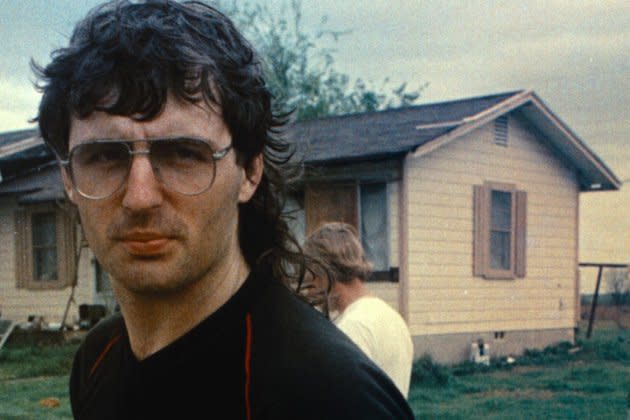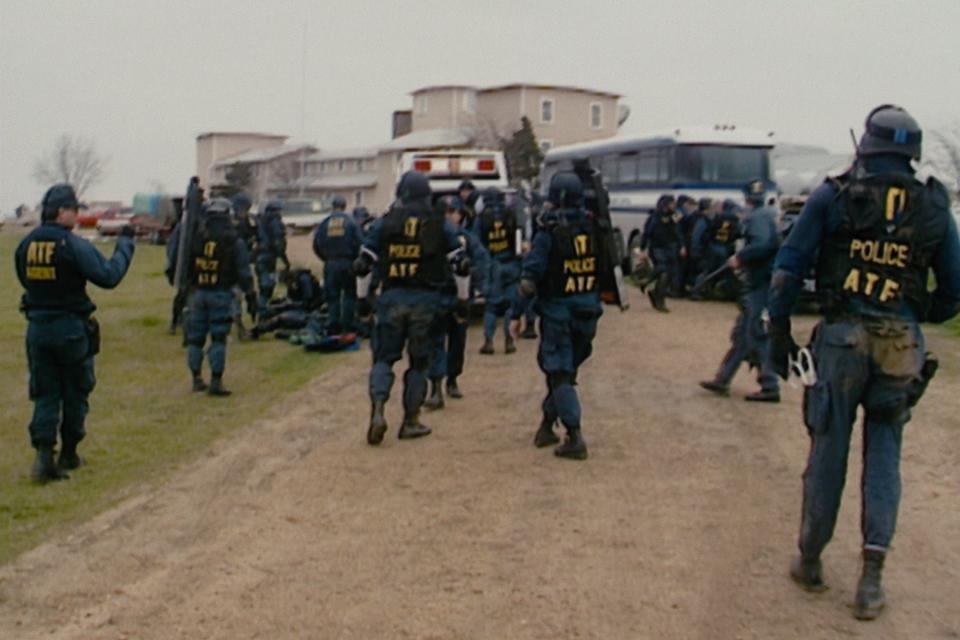Netflix Exposes the Pedophile Cult Leader Who Went to War With the FBI

Nobody came out of the 1993 Waco tragedy looking good. Not David Koresh, the messianic religious/cult leader who stockpiled illegal weapons and married underage girls in order to spread his seed for a coming apocalypse. Not the ATF, which went ahead with its raid on Koresh’s Branch Davidian compound despite knowing that they were expected, eliminating any element of surprise. And not the FBI, whose hostage rescue and negotiation teams were constantly at odds over both means and ends. In the end, 86 people – 82 Davidians and four ATF agents – were killed.
The new three-part Netflix docuseries Waco: American Apocalypse tells this story from seemingly every side, drilling deep into the specifics if not always the bigger picture. But the specifics are important here. The story has been analyzed and argued over ad infinitum, especially in the midst of the 30th anniversary. The societal impact, particularly the surge of often violent anti-government fervor that grew from the events in Waco, is vitally important; this is the focus of Showtime’s upcoming dramatic series, Waco: The Aftermath. American Apocalypse director Tiller Russell (Netflix’s Nightstalker: The Hunt for a Serial Killer) is after something different. Through interviews with all parties and never-before-seen footage, he wants to explore the facts, through all the fog of war and vehement disagreement. And he succeeds more often than not.
More from Rolling Stone
The first part of the series sets the stage, introducing a man who claimed to be the son of God and the people who believed him. Koresh new the Bible inside and out, and he could lecture on it for hours on end. Two surviving Davidians, David Thibodeau and Kathy Schroeder (more on her later), face the camera and lay out the appeal of life at Mount Carmel, the Davidians’ home base. They describe a nurturing environment ruled by a holy man. That holy man was also hard at work illegally converting semiautomatic weapons into the automatic kind, stockpiling artillery for what he saw as the approaching battle with the forces of Babylon — or the outside, secular world. Koresh and his troops were preparing for war. American Apocalypse could use some additional context in this area. In eschewing experts, aside from journalists who were there, the series stays on the ground, where the action was. But it also asks those who were closest to that action to provide levelheaded analysis, and they aren’t always the best people for that job. They have skin in the game.
The large quantity of illegal weapons is what drew the ATF; after their botched raid, the FBI took over, and the final two episodes consist largely of the ensuing quagmire, a 51-day standoff that culminated in an inferno that was witnessed by television viewers around the world. Russell deftly incorporates newly discovered footage filmed from inside the FBI Crisis Negotiation Unit, where lead negotiator Gary Noesner and his team try to coax the Davidians out of their compound. He’s up against Koresh, who has a way of backing out of promises based on what God is telling him at any given time. But the negotiators are also at odds with the FBI Hostage Rescue Team, which, generally speaking, has no interest in extending olive branches. Both FBI teams are upfront about their cross purposes, which made it virtually impossible to present any kind of united front during the crisis.

Then there’s Kathy Schroeder, an unrepentant survivor who proves to be a one-woman fount of cringe. She believed Koresh was the son of God then, and she still does (although she testified against her fellow Davidians in court). She blithely defends even Koresh’s most egregious behavior. On the fact that he had sex with underage girls: “People think that having sex with a bunch of underage girls is a crime, and in conventional wisdom that could very well be true. However, these weren’t underage girls because you come of age at 12.” Koresh had a policy of separating husbands from their wives so he could then bed the women and hope to expand his empire. Schroeder was among these women. “The whole time we were having sex was a Bible study,” she says.” Russell doesn’t interrupt such reveries. He gets out of the way and subscribes to the “Give ‘em enough rope” school of interviewing. In this case, it doesn’t take much.
The “conventional wisdom” quote is haunting and more than a little disturbing, but it also gets at a fundamental truth about the Waco story. Koresh and his followers cared not a whit what the rest of the world thought and believed. The Davidians were convinced they were living with and following God’s messenger, and who were they to argue with God? Negotiators were able to extract 35 people from the compound, including Heather Jones, who sits for an interview here as an adult. But in the end the two sides were speaking different languages. One was rooted in some semblance of objective reality. The other was the tongue of the true believer. The twain could never meet. And the rest is tragedy.
Best of Rolling Stone

 Yahoo Autos
Yahoo Autos 